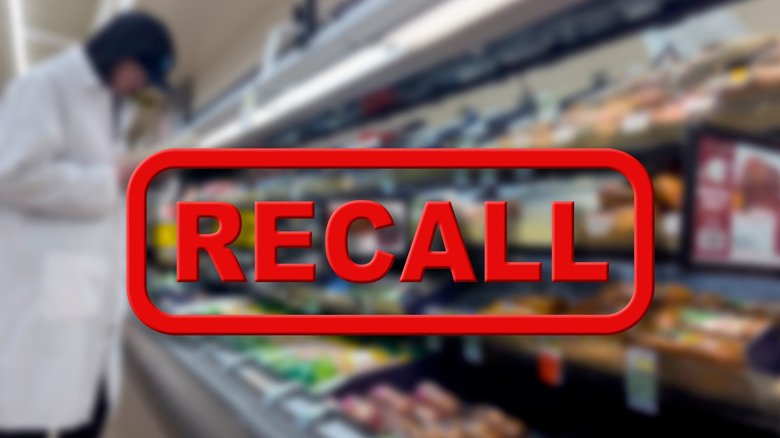What Does 'Undeclared Milk' Mean In A Recall?
Food recalls are a bittersweet occurrence. On the one hand, it's stressful to think that something sitting inside your cupboard may be potentially harmful. On the other hand, without recalls, that potentially harmful item may still be in your cupboard and you wouldn't know. There are countless reasons for food recalls, one being undeclared milk — but what exactly does that mean?
Undeclared milk occurs when a food product is subject to cross-contamination with milk when dairy isn't listed on the packaging or ingredients. Exposure to milk products can be hazardous for a number of consumers. For example, those with severe milk allergies can experience anaphylaxis when exposed to dairy, which can be fatal. The severity of the symptoms a person would experience depends on the severity of their allergy. For most, symptoms will include hives, itching around the face and mouth, swelling of the tongue and throat, and shortness of breath.
Usually, a person with a dairy allergy can avoid food products containing dairy by reading the information provided on the label. However, when cross-contamination occurs, a recall for undeclared milk will be issued. The first recall in the United States pulled millions of products off the shelves, but lately, food recalls seem to be on the rise. Undeclared allergens are far from the only reason a product may be recalled.
Recalls can happen for many reasons
Undeclared milk due to cross-contamination is a good reason to recall a product, but it's far from the only reason food gets pulled from the shelves. A lot goes into the food manufacturing process and accidents can lead to things that aren't food winding up in a food product. Think glass, metal, dirt, and debris. Anything that isn't edible and isn't the specific item being processed and packaged may be enough for a recall.
The presence of harmful microorganisms will also get an item on the recall list. Sure, some foods can be toxic if cooked incorrectly, but if a product contains a dangerous parasite or bacteria that will make the consumer ill or worse, it needs to be pulled. It's frustrating to hear of a recall after you've purchased something — no one likes a hassle. However, the safer option is to heed the warning and dispose of the food or whatever the recall suggests. It's always better to be safe than sorry, especially with food. If you don't hear about a recall through the grapevine, the FDA provides an updated list online for consumers to check periodically.

